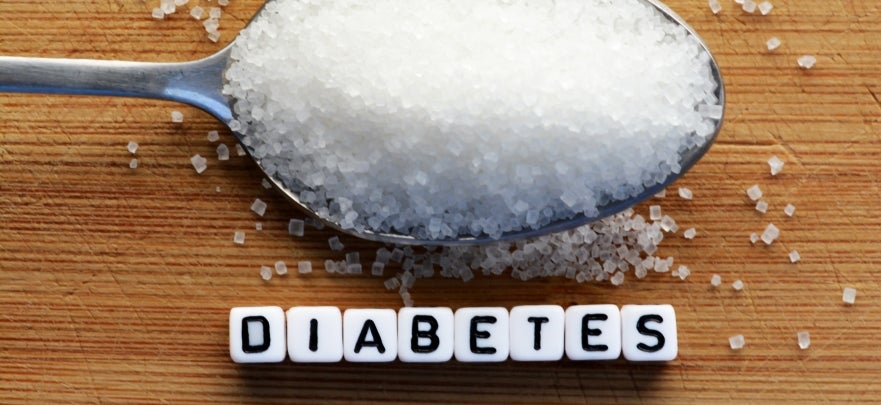What is Diabetes and How You Can Lower Risk?
Diabetes mellitus is a disease characterized by an excess of blood glucose, aka blood sugar. The three common types of diabetes are type 1 diabetes, type 2 diabetes, and gestational diabetes. These conditions are all characterized by high blood sugar and they can all cause a variety of symptoms. The most common early symptoms being fatigue and increased frequency of urination.
Type 1 and type 2 diabetes create long-term complications, including vision changes and an increased risk of heart disease and stroke. Gestational diabetes can cause complications during pregnancy and delivery. The symptoms and risk of complications can be reduced for all types of diabetes with a strict medically managed program.
Insulin and Diabetes
All three types of diabetes involve the body’s ability to metabolize glucose and insulin being altered. Glucose, the body’s main energy source, is a component of carbohydrates. Insulin is a hormone produced by the pancreas and helps the body store and use glucose.
Type 1 diabetes is when there is not enough insulin, or Type 2/gestational diabetes, when the body doesn't respond to insulin as it should, the blood glucose levels rise.
Types of Diabetes
All three types of diabetes are fairly common. If you experience any of the following symptoms you should seek medical attention as they are commonly associated with diabetes or another metabolic problem: urinary frequency, increased thirst, episodes of lightheadedness, or unexplained weight changes.
Type 1 Diabetes
Type 1 diabetes occurs when the pancreas stops or nearly stops producing insulin. Type 1 diabetes has also been referred to as insulin-dependent diabetes and juvenile diabetes.
Type 2 Diabetes
Type 2 diabetes occurs when the body is unable to make effective use of insulin. This is often referred to as insulin resistance.
Often, weight and diet management can reverse pre-diabetes or metabolic syndrome and can prevent the development of type 2 diabetes.
Type 2 diabetes is treated with medication, diet, and lifestyle changes, such as weight loss and exercise.
Gestational Diabetes
If you develop a high blood sugar during pregnancy but have not been diagnosed with diabetes previously, you may have gestational diabetes. This condition can predispose your baby to growth and developmental issues and can complicate pregnancy and delivery.
There are ways to control or even prevent a prediabetic condition from going into full type 2 diabetes as well control further complications from type 1 diabetes. Since changing your genetics and age aren’t realistic options, here are some quick tips to follow that will help you change what you can:
1. Cut Sugar and Refined Carbs From Your Diet
Eating sugary foods and refined carbs results in a rise of blood sugar causing the pancreas to produce insulin in order to help get the sugar out of your bloodstream. Pre-diabetics are insulin resistant therefore the high blood sugar levels remain in your body.
2. Work Out Regularly
Physical activity on a regular basis may help prevent diabetes. Exercise increases your cell’s sensitivity to insulin.
3. Try Drinking Only Water
Water is by far the best and only natural beverage you should drink. Sticking with water most of the time will help you avoid the high sugar and processed drinks like soda and punch.
4. Lose Some Weight
It is true that not everyone who is overweight or obese will develop type 2 diabetes, the majority will. Additionally, those who carry visceral fat (weight around the midsection and abdominal organs) are more likely to become prediabetic.
5. Quit Smoking
Smoking has been shown to cause or contribute to many serious health conditions, including heart disease, emphysema and cancers of the lung, breast, prostate and digestive tract.
6. Stick to a Low-Carb Diet
Following a very-low-carb diet can help you avoid diabetes. Although there are several ways of eating that promote weight loss, very-low-carb diets have strong evidence to support diabetes prevention and management. Those types of diets have consistently been shown to lower blood sugar and insulin levels as well as increase insulin sensitivity.
7. Control Portion Sizes
It's important to avoid large portions of food, whether on a low carb diet or not, to reduce the risk of diabetes, especially if you are overweight. Eating too much food at once can cause higher blood sugar and insulin levels in people at risk of diabetes.
8. Avoid Sedentary Behaviors
Avoid being sedentary if you want to prevent diabetes. If you get no or very little physical activity, and you sit during most of your day, then you lead a sedentary lifestyle.
9. Eat a High-Fiber Diet
Getting plenty of fiber is beneficial for gut health, weight management and has been shown to help keep blood sugar levels low.
10. Increase Your Levels of Vitamin D
Believe it or not, Vitamin D is important for blood sugar control. It has been found that people who don't get enough vitamin D, or whose levels are too low, have a greater risk of all types of diabetes.
11. Reduce or Eliminate Processed Foods
One big step you can take to improve your health and reduce your risk is to minimize your consumption of processed foods. They're linked to a number of health problems, including heart disease, obesity and diabetes.
12. Drink Unsweetened Coffee or Tea
Although water should be your only beverage, including coffee or tea in your diet on a daily basis may help you avoid diabetes and reduce your risk of type 2 diabetes by as much as 54%.
13. Consider Taking Natural Herbs
There are quite a few herbs that may help increase insulin sensitivity and reduce the progression of diabetes.
Curcumin: Curcumin is a component of the bright gold spice turmeric, which is one of the main ingredients in curries.
Berberine: Berberine is found in several herbs and has been used in traditional Chinese medicine for thousands of years.






